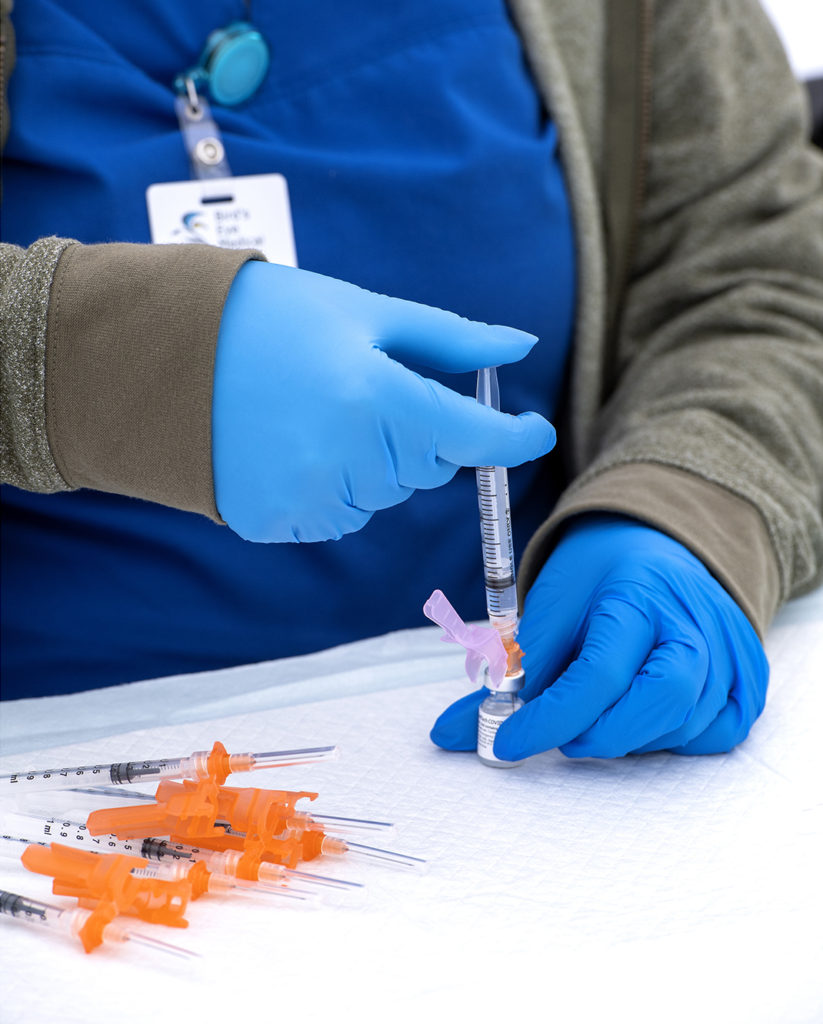A new policy brief from LCH reports that, although Washington state has made significant progress towards vaccinating Latinos against COVID-19, some urban and rural Latinx communities are lagging behind and remain at significant risk of COVID-19 infections.
University of Washington, Seattle: As part of a newly released COVID-19 policy brief, the Latino Center for Health reports that overall in Washington state, the rate of fully vaccinated individuals among Latinos twelve years of age and older was 54.6% as of September 29, 2021, up from 40.5% in July (2021), representing a 33.4% increase in the number of vaccinated Latinos.
“The greatest risk we face now is to be complacent about the COVID-19 pandemic. We cannot rest until we have reached all unvaccinated and under-vaccinated Latinos in our state,” said LCH co-Director Leo S. Morales, MD, PhD, who wrote the policy brief.
Although progress has been made since July, this is a critical moment to reexamine vaccination rates among Latinos, with approximately 341,808 of the estimated 752,802 Latinos twelve years of age and older in our state remaining partially vaccinated or unvaccinated. Approval of COVID-19 vaccines for 5–11 year-olds will result in 156,577 additional Latinx children in the state becoming eligible to for vaccination.
This policy brief urges our state’s elected leadership to continue their support of community-based organizations and trusted community leaders who use culturally and linguistically tailored approaches to increase access and overcome hesitancy to COVID-19 vaccines in Latinx communities.
Other recommendations for increasing vaccine uptake among Latinos can be found in our recent policy briefs on vaccine hesitancy and COVID-19 information sources.
This policy brief is part of LCH’s COVID-19 policy brief series. LCH researchers used data from the 2019 Census QuickFacts website and the WA State Department of Health COVID-19 Dashboard.
Download the policy brief here:
